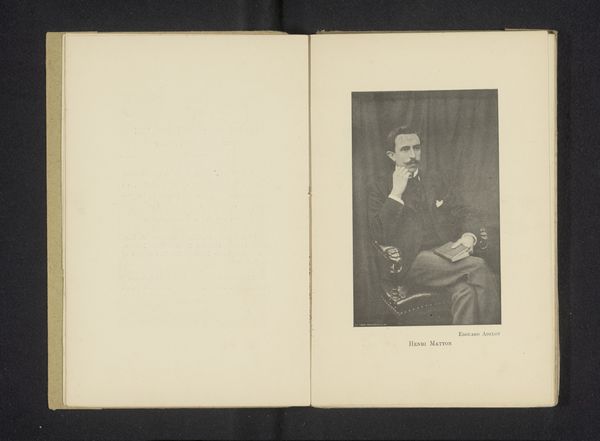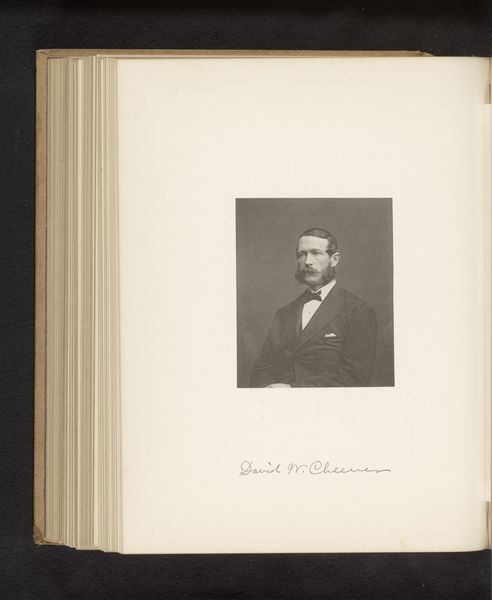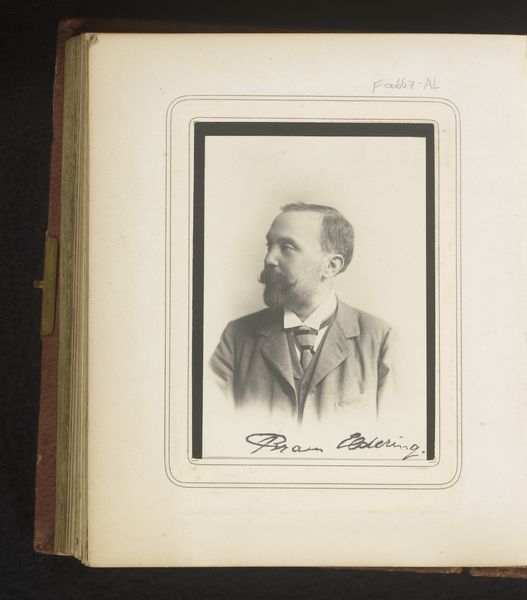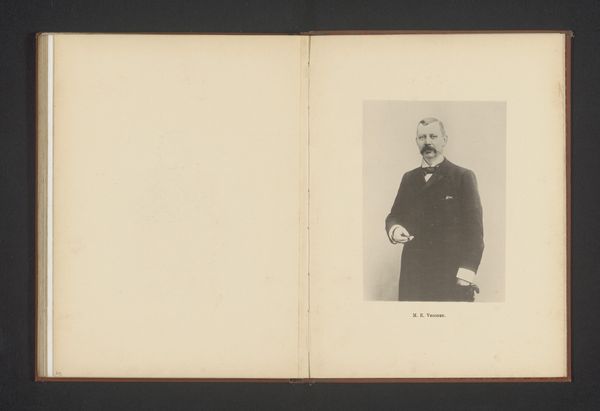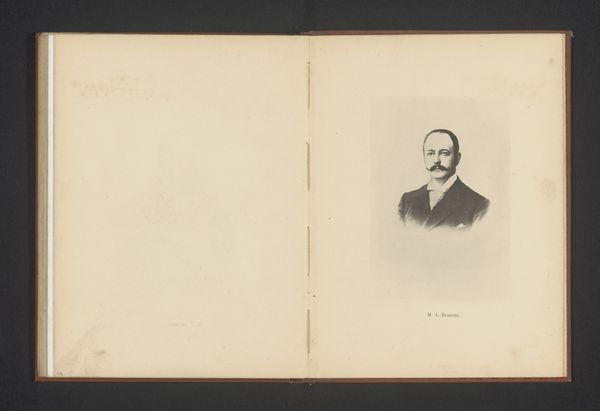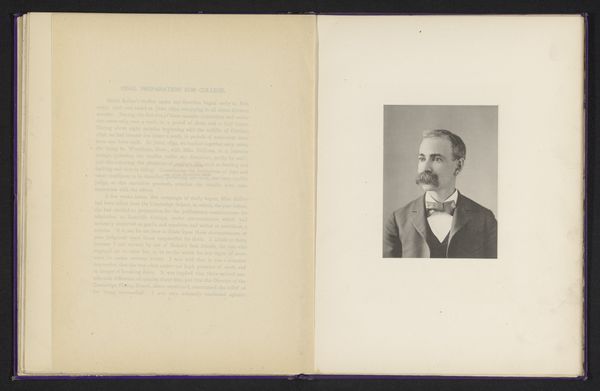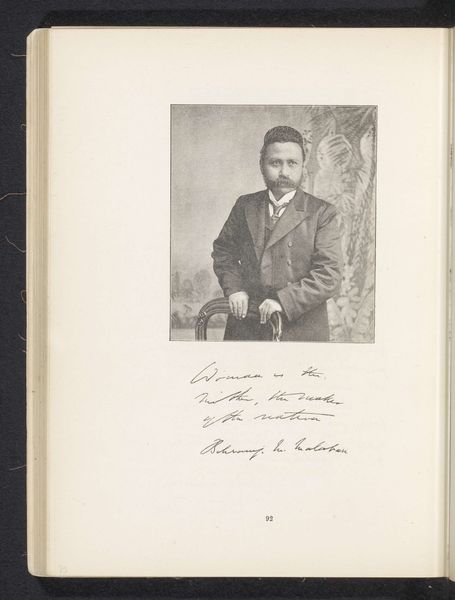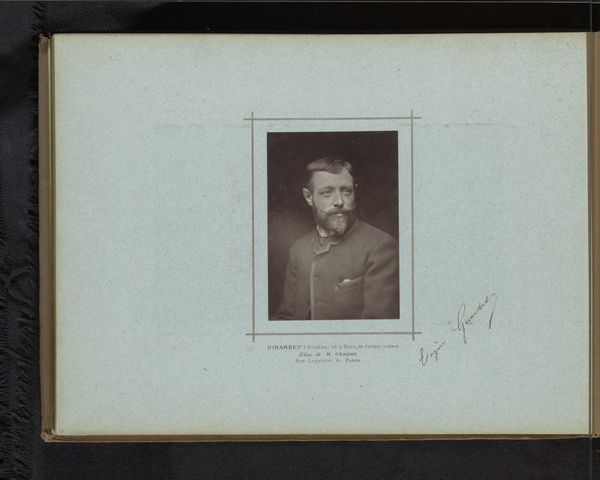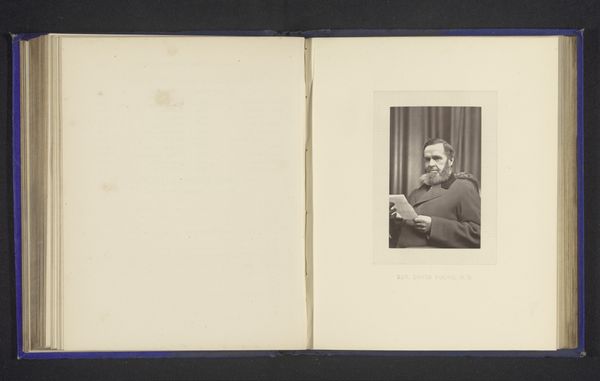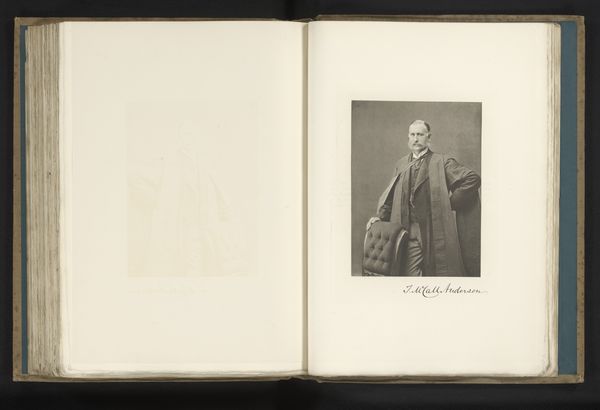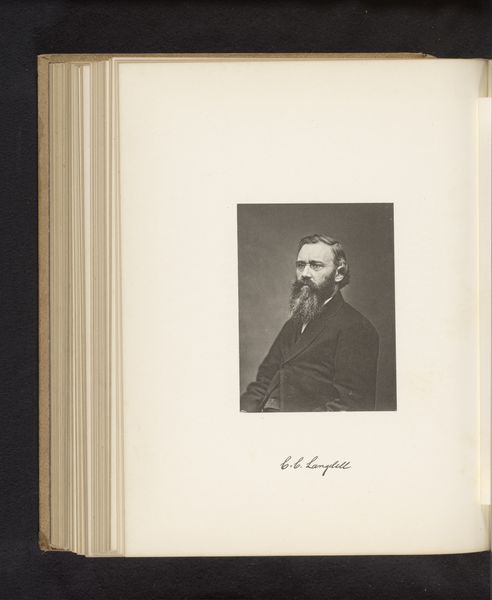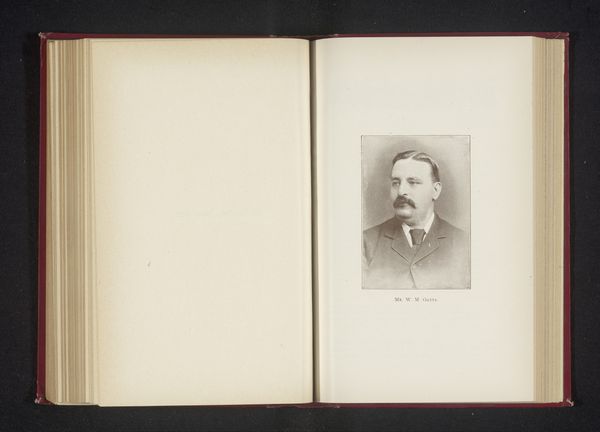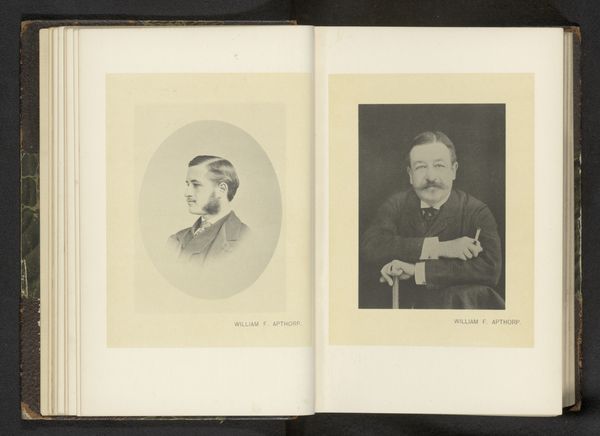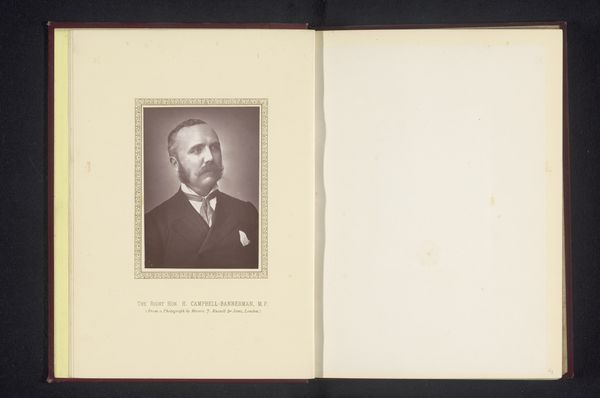
photography, gelatin-silver-print
#
portrait
#
photography
#
gelatin-silver-print
#
realism
Dimensions: height 145 mm, width 115 mm
Copyright: Rijks Museum: Open Domain
This photographic portrait of Charles Edward Buckingham was made with silver and other chemicals on paper, probably sometime in the late 19th century. Photography in this period was a complex process, less about the click of a button and more about the patient manipulation of materials. This particular print, mounted on a thick page, has a rich sepia tone. The tonal range is a direct result of the chemicals used, and the careful control of light and development time. The photographer has also used lighting and posing to create a specific impression of Buckingham. Consider the labor involved. Not just the photographer's expertise, but the industrial processes required to produce the paper and chemicals. Photography democratized portraiture, yet even this relatively accessible medium depended on a complex web of production and consumption. Thinking about this image, and the labor required to produce it, can help us to appreciate its true value. It challenges us to reconsider how we define art and the hierarchies we often impose upon different forms of creative production.
Comments
No comments
Be the first to comment and join the conversation on the ultimate creative platform.
